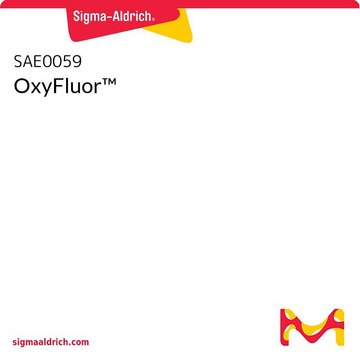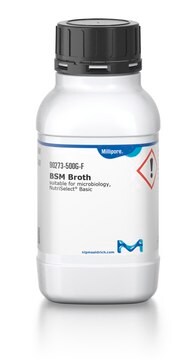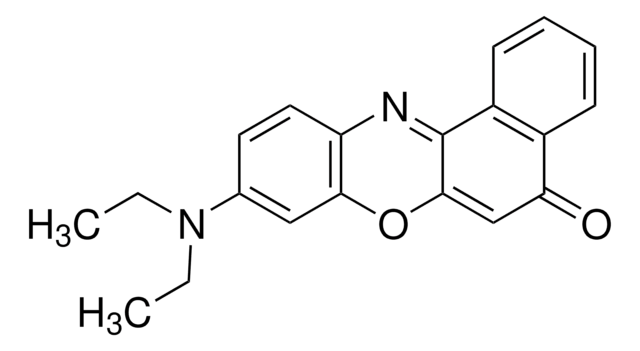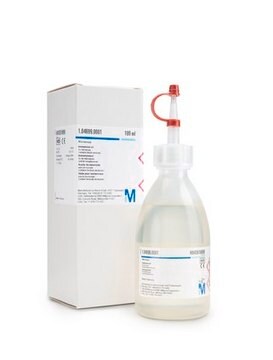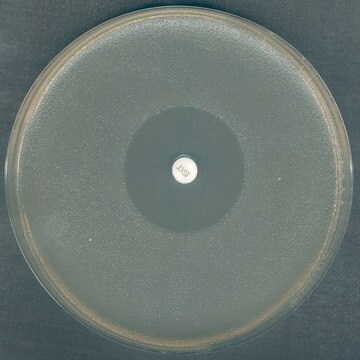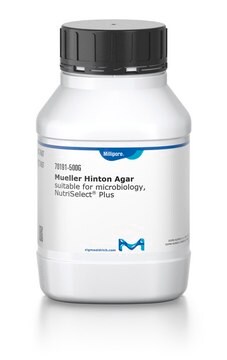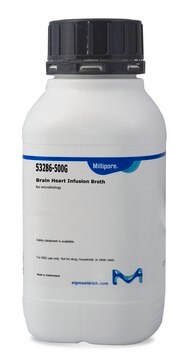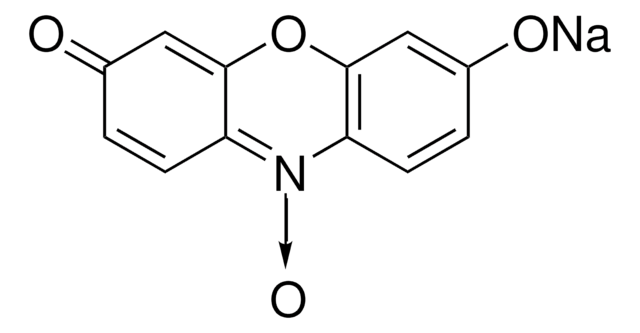Recommended Products
General description
Oxyrase for Broth is a sterile enzyme formulation that uses the Oxyrase Enzyme System to produce anaerobic conditions in different bacteriological broth media. Oxyrase for Broth facilitates growth of anaerobes, such as for reviving lyophiles. Oxyrase for Broth is a ready-to-use product that renders broth anaerobic in 10-15 minutes, and continues to remove oxygen from the container headspace beyond that time.
Application
Oxyrase® for broth has been used in reinforced clostridial media to provide an anaerobic environment for culturing Bifidobacterium adolescentis. It has also been used as a component in PMM/imaging media for oxygen-free microscopy experiments to remove oxygen.
Biochem/physiol Actions
Oxyrase® for broth is useful to cultivate species like Shigella sonnei and Shewanella oneidensis.It also provides anaerobic conditions for cultivating species like Escherichia coli, Staphylococcus aureus, and Pseudomonas aeruginosa.
Storage and Stability
Store at -20 °C. (Long Term Storage)
Analysis Note
Oxyrase contains a penicillin binding protein that may interfere with penicillin and some related antibiotics.
Legal Information
Oxyrase is a registered trademark of Oxyrase, Inc.
related product
Product No.
Description
Pricing
Storage Class Code
10 - Combustible liquids
WGK
WGK 1
Flash Point(F)
Not applicable
Flash Point(C)
Not applicable
Choose from one of the most recent versions:
Already Own This Product?
Find documentation for the products that you have recently purchased in the Document Library.
Customers Also Viewed
Andrew P Jacobson et al.
Journal of AOAC International, 87(5), 1115-1122 (2004-10-21)
Alternative methods of reducing oxygen during anaerobic enrichment in the Bacteriological Analytical Manual (BAM) Shigella culture method were evaluated and compared to the current and less practical GasPak method. The alternative anaerobic methods included the use of reducing agents in
Ken H Liu et al.
Nature metabolism, 3(12), 1694-1705 (2021-12-22)
Obesity and obesity-related metabolic disorders are linked to the intestinal microbiome. However, the causality of changes in the microbiome-host interaction affecting energy metabolism remains controversial. Here, we show the microbiome-derived metabolite δ-valerobetaine (VB) is a diet-dependent obesogen that is increased
Giancarlo Noe Bruni et al.
eLife, 9 (2020-08-05)
Aminoglycosides are broad-spectrum antibiotics whose mechanism of action is under debate. It is widely accepted that membrane voltage potentiates aminoglycoside activity, which is ascribed to voltage-dependent drug uptake. In this paper, we measured the response of Escherichia coli treated with
Our team of scientists has experience in all areas of research including Life Science, Material Science, Chemical Synthesis, Chromatography, Analytical and many others.
Contact Technical Service

